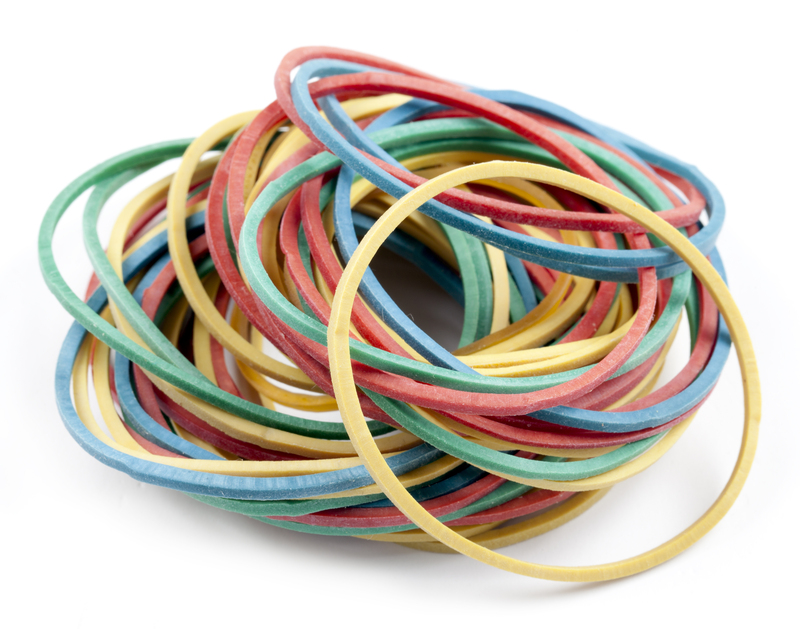Money-Saving Hacks for Getting Rid of Bulky Waste Responsibly
Getting rid of bulky waste--such as old furniture, mattresses, large appliances, and yard debris--can be a daunting and sometimes expensive task. However, disposing of these items in a responsible and budget-friendly way is not only beneficial for the environment but can also help you save money and even make a bit back. In this comprehensive guide on money-saving hacks for getting rid of bulky waste responsibly, you'll learn smart, actionable tips to declutter without breaking the bank.
Understanding Bulky Waste: What Qualifies?
Before you dive into disposal methods, it's essential to understand what falls into the category of bulky waste. Typically, bulky waste refers to items that are too large or heavy to be accepted by regular household trash collection, such as:
- Large furniture (sofas, beds, wardrobes, tables, chairs)
- Mattresses and box springs
- Old appliances (washing machines, refrigerators, ovens, microwaves)
- Electronic waste (TVs, computers, monitors)
- Yard debris (tree limbs, large amounts of brush or lawn clippings, stumps)
- Renovation debris (carpet, tiles, bathtubs, sinks)
Proper disposal of these items is crucial because they can cause environmental harm and illegal dumping is subject to hefty fines. But don't worry--there are cost-effective and sustainable solutions!

Plan Ahead: Save Money and Time
The number one way to save money on bulk waste disposal is to plan ahead. Start by inventorying all the bulky items you wish to get rid of.
- Sort items into categories: donate, sell, recycle, and dispose.
- Group similar items for easier handling and transport.
- Check local regulations for bulky waste disposal in your area to avoid unnecessary service charges.
Some municipalities offer free or discounted pick-up services if you book in advance or combine items. Use this to your advantage by timing your cleanout with local collection days.
Reuse and Repurpose: Give New Life to Old Items
Before thinking about disposal, ask yourself if any items can be reused or repurposed. Repurposing bulky waste can be a creative, money-saving hack that keeps items out of landfills.
DIY Upcycling Projects
- Turn old bookshelves or dressers into garden planters. Just a coat of weatherproof paint creates a striking outdoor piece.
- Repurpose doors or headboards as wall art or shelving: With some sanding and paint, you can make unique decor.
- Transform pallets into furniture such as coffee tables, shoe racks, or outdoor lounges.
Get creative! Numerous online resources offer step-by-step guides for repurposing and upcycling bulky waste on a budget.
Sell Unwanted Bulky Waste: Make Money Instead of Spending It
It may surprise you how many people are interested in used furniture or appliances, even if they're not pristine. Selling bulky items is a smart way to offset or even completely cover your disposal costs!
Best Platforms to Sell Used Bulky Items
- Online marketplaces like Facebook Marketplace, Craigslist, eBay, and OfferUp.
- Apps like Letgo or Nextdoor.
- Community garage sales or flea markets.
Be honest in your descriptions, provide clear photos, and set a fair price for quick sales. Offer buyers the option to pick up directly from your home to save on haul-away costs.
Donation: A Responsible and Cost-Effective Option
Donating bulky items helps others and is an eco-friendly solution. Many non-profits and charities accept gently used large items, and some even offer free pick-up.
Who Accepts Large Item Donations?
- Goodwill, Habitat for Humanity ReStores, and local shelters--often accept furniture and appliances.
- Religious organizations that support families in need.
- Community service programs for housing the homeless or refugee resettlement.
You may even receive a tax deduction for your donation--ensure you get a receipt for any bulky waste contributions.
Find Free or Low-Cost Bulky Waste Collection Services
Many municipalities offer scheduled pickups or drop-off days for bulk waste. This can be:
- Monthly or quarterly curbside bulk collection.
- Annual community clean-up events where you can dispose of large items at local collection sites.
- Low-fee landfill days for residents, subsidized by city programs.
Check your city or county website for the latest schedule and rules. Some areas also provide discounts for seniors or low-income residents.
Tips for Using Municipal Services Efficiently
- Combine items with neighbors to maximize space and minimize charges for shared pickups.
- Break down items (remove legs from couches, doors from appliances) to save space and possibly reduce fees.
- Schedule well in advance--appointments fill up quickly during peak seasons.
Rent a Dumpster--But Share the Cost
If you're tackling a major cleanout (like moving, a renovation, or clearing an estate), renting a dumpster might be necessary. However, dumpsters can be expensive.
- Team up with neighbors or friends who also have bulky waste to dispose of, and split the rental fee for significant savings.
- Choose the smallest size suitable for your project to avoid paying for unused space.
Always ask the rental company about prohibited items and recycling options--certain materials should not be tossed in a dumpster.
Recycle Bulky Waste Responsibly
Not all large items belong in landfill. Many can be recycled, which is better for the environment and sometimes cheaper (or free). Electronic waste, appliances, metal, and even mattresses often have dedicated recycling streams.
How to Find Local Recycling Facilities
- Search city websites for certified recycling centers--many accept large items at little or no cost.
- Use services like Earth911 or Call2Recycle to locate the nearest drop-off point.
- Retailers and manufacturers sometimes offer take-back programs for old electronics or appliances when you buy new ones.
Proper recycling reduces landfill waste and can extend the life of materials such as metal, glass, and plastics.
Hire Junk Removal Services Wisely
While hiring professionals isn't always the most frugal option, there are ways to save money if you decide to go this route.
- Get multiple quotes and compare costs for the amount and type of bulk waste you have.
- Schedule during off-peak times--companies may offer discounts on weekdays or in slower seasons.
- Ask about eco-friendly disposal: Some companies divert as much as 60-80% of what they collect for donation or recycling.
For large-scale projects, group your waste with friends or neighbors to split the cost of a removal service.
Avoid These Common Bulky Waste Disposal Mistakes
- Illegal dumping--Can result in fines, environmental damage, and a bad reputation in your community.
- Paying for services you don't need--Assess whether you can donate, sell, or recycle before hiring removal services or renting a dumpster.
- Ignoring local guidelines--Check with your municipality to prevent rejection or extra fees.
Responsible and cost-saving disposal starts with knowledge! Always handle bulky waste thoughtfully to avoid surprising costs or negative impacts.

Creative Alternatives: Community Swaps and Freecycling
Looking for ultra-low-cost or even free ways to offload large unwanted items? Community swaps and freecycling programs could be your answer.
- Community "free days": Organize or participate in a neighborhood event where everyone brings unwanted bulky items to swap or give away.
- Join local Freecycle networks: Online groups where residents offer up large items for free to anyone who can use them.
These approaches keep items in use for longer and build social bonds--all while saving you money.
Conclusion: Save Money and the Planet with Responsible Bulky Waste Disposal
Responsible, budget-friendly bulky waste disposal is entirely possible once you know your options. By planning ahead, reusing, selling, donating, recycling, and leveraging municipal services, you can clear space in your home without emptying your wallet--or harming the environment.
- Start with reuse and repurpose wherever possible.
- Sell or donate gently used items.
- Use municipal or community services for disposal and recycling.
- Share costs with neighbors or friends for larger jobs.
By following these money-saving hacks for responsible bulky waste disposal, you're making a positive impact on both your finances and the planet.
Have more creative ideas or success stories about getting rid of bulky waste responsibly? Share them with your local community or on social media to help others too!
